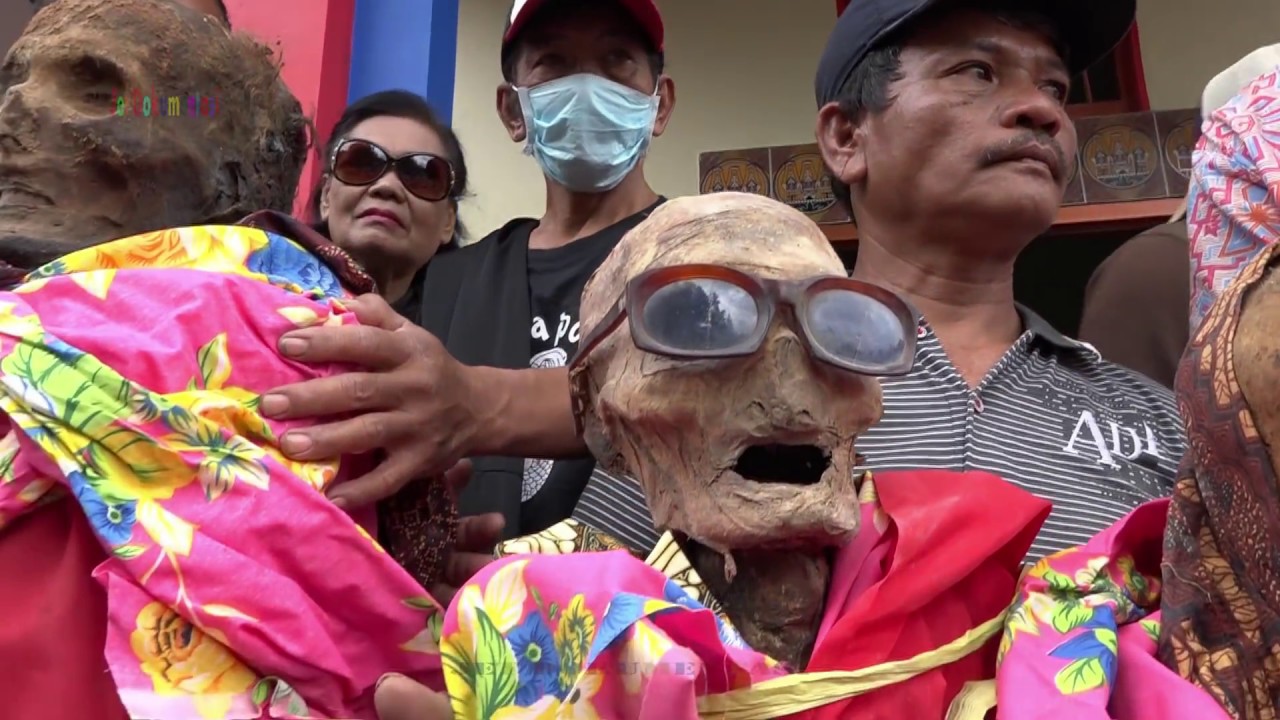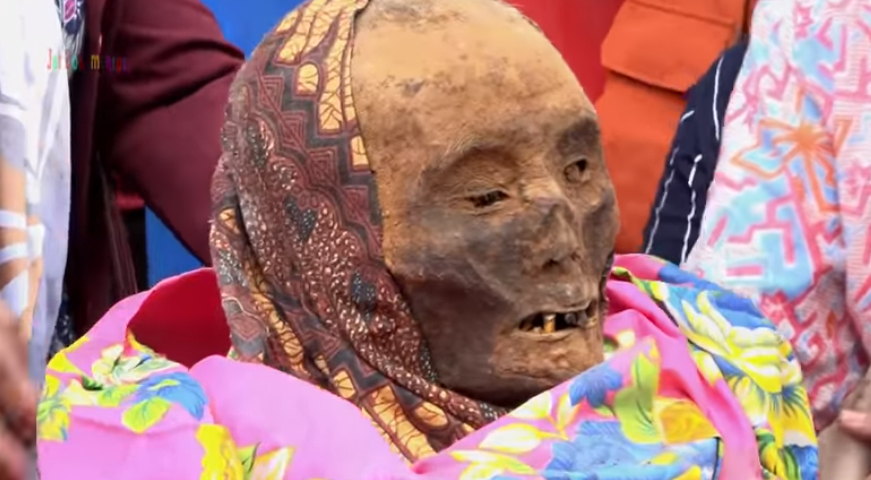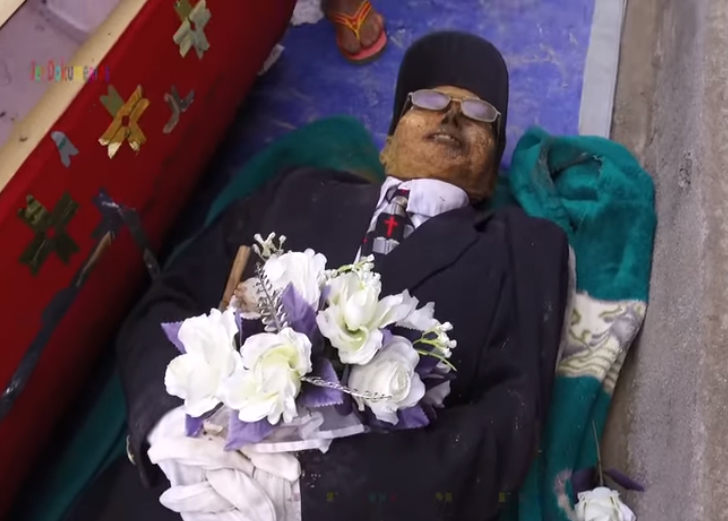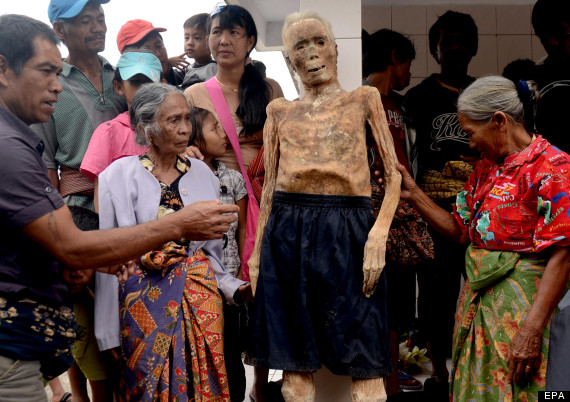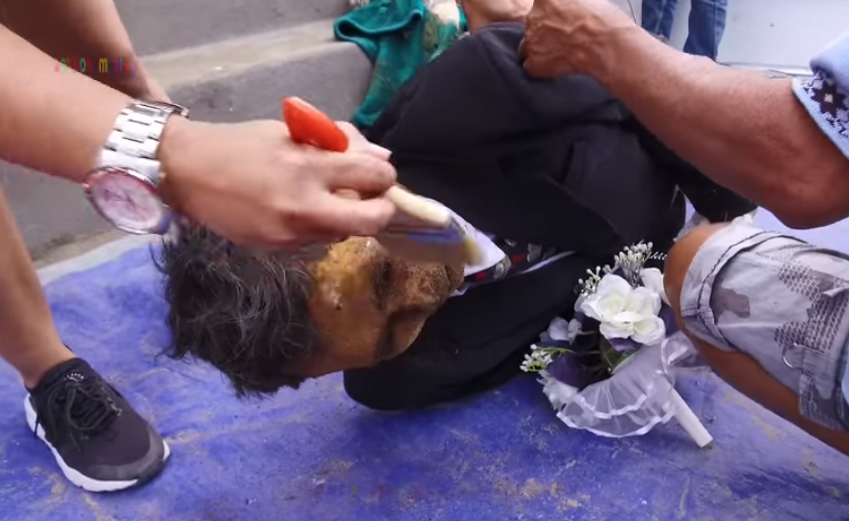This Group Of Indonesians Hold, Feed, And Live With Dead Bodies Of Their Relatives
One million people in Indonesia practise this tradition, which dates back to several centuries.
About 800km from Bali, lives a group of Toraja people who treat the bodies of their dead relatives as though they are still alive
For many, this may seem absurd. However, the tradition has long been practised by the Torajans, dating back to several centuries, BBC reported.
Warning: Graphic images ahead. Viewer discretion is advised.
The ethnic group, consisting of one million people, believe that the soul of a person remains near the body even after death and that a well-preserved body brings them good fortune
After someone passes away, the families go through great efforts to care for them by providing them with food, clothing, water, and even a bowl to use as a "toilet"
To remove the stench of decaying odours, the bodies are mummified and special leaves and herbs are rubbed onto them.
A chemical solution called formalin is coated onto the corpses to preserve the flesh and skin from rotting, The Sun reported.
The bodies are then wrapped in blankets and live in the homes until their funerals – which can often take place months or decades later.
For Torajans, funerals are a long, gradual process of grieving over their loved ones, and keeping the dead bodies is part of that tradition
"My mother died suddenly, so we aren't ready yet to let her go," Yohana Palangda told National Geographic. "I can't accept burying her too quickly," she said while crying.
According to BBC, the families believe that the spirits of the deceased may give them trouble if they do not care for them when they die.
A traditional ritual is usually held annually, known as 'Ma'nene', which simply means "care for ancestors".
It's a time when the dead are removed from the coffins, washed of dirt and insects, dressed in clothes, and brought to the village.
Similar to a wedding, these "second funerals" are seen as a celebration of life rather than a moment of despair
It is also a time when the younger generation can "meet their ancestors", offer food and cigarettes, or take a selfie, The Sun revealed.
The dead are then returned to their coffins and left with gifts, such as watches and jewellery.
The tradition is continued every couple of years, as families take out the coffins of their deceased loved ones for a reunion, BBC revealed.
